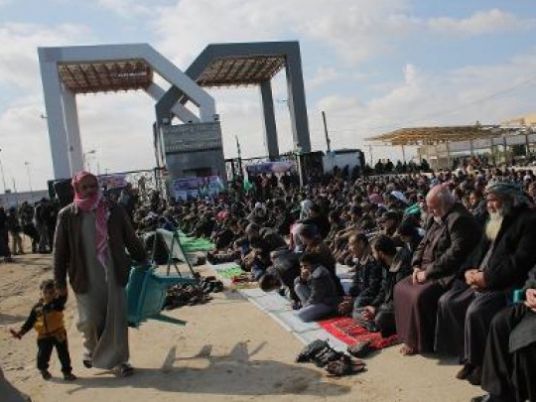The relationship between Egypt and Israel changed from a state of war and confrontation to an era of cold peace, and many were assured that our wars with Israel were not because of Nasser (regardless of his primary responsibility for the defeat of 1967), as the Kingdom of Egypt fought Israel in 1948 with a weak army that was part of the Arab defeat and the beginning of the Nakba of Palestine.
When Egypt nationalized the Suez Canal in 1956, it did not declare war on Israel and did not say that it intended to invade Tel Aviv, but only regained its historical right in the Suez Canal. However, Israel joined Britain and France in their aggression against Egypt. We stood up militarily with honor, and we won a great political victory.
Then it was the defeat of 1967 and the victory of 1973 to start Egypt’s negotiations with Israel, which ended with the signing of President Sadat to a separate (from Arabs) peace agreement with Israel, followed by the era of the cold peace practiced by the government, and the majority of the people didn’t engage in it.
Throughout Sadat and Mubarak’s eras, Egypt was critical of Israel because of its settlement policy and because of the abuse of the Palestinian people and its refusal to abide by UN resolutions until it becomes a state above the law and above international legitimacy.
A large number of Arab intellectuals have often criticized the performance of the Arab regimes in general and the Egyptian regime in particular in that they are all just condemning and rejecting. Many intellectuals have ridiculed denunciations that do not provide any real support for the Palestinian cause and exert no pressure on Israel to end the occupation.
Indeed, the transformation of the form and content of the official discourse in the last four years is remarkable. It has reflected its abandon to all the previous stages, whether when Egypt fought Israel or established peace with it. Both of these stages didn’t ignore that Israel is the last racist occupation state in the world, and that even presidents Sadat and Mubarak, who were committed to peace, condemned its policy.
The current official discourse has been absent from any explicit or implicit condemnation for the Israeli occupation, and is talking about two rival peoples or two conflicting countries that bear the same responsibility in the tragedies of the other people, and not an occupying state that oppresses a people and occupies its land and refuses to give it its rights to build its independent state.
It is therefore strange that President Sisi, in his speech to the United Nations, calls upon the Palestinian people (oppressed and under occupation) to accept to live in peace with the Israeli people, then he demanded later that they “stand behind their leadership to make the peace process a success.” This comes while the reality says that the Israeli leadership does not want any peace and pursues a policy of expansion and settlement under US and international cover.
It is certain that Egypt has witnessed a political split and that the emergence of violent groups and terrorism, which threaten everyone, has made many believe that the danger of these groups is greater than the danger of Israel, and therefore its crimes must be ignored.
It is not necessary to fight Israel or to overthrow the Camp David accords because the battle of Egypt is internal for building, but it is not necessary to continue this discourse, which equates an occupied people with an occupation authority. If we want to build a just society in Egypt, we must not accept the absence of justice in Palestine and anywhere in the world, even if you are a victim of media oriented hatred to Palestine and your love for an occupying state.




